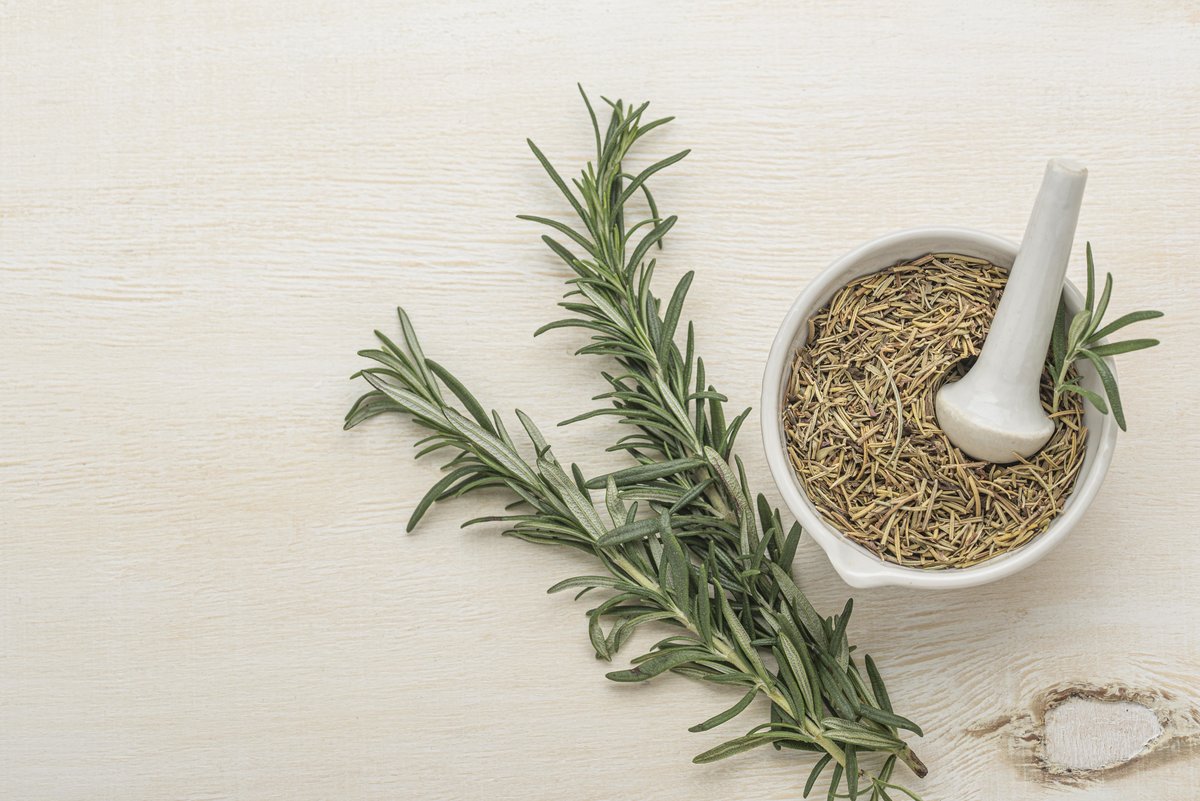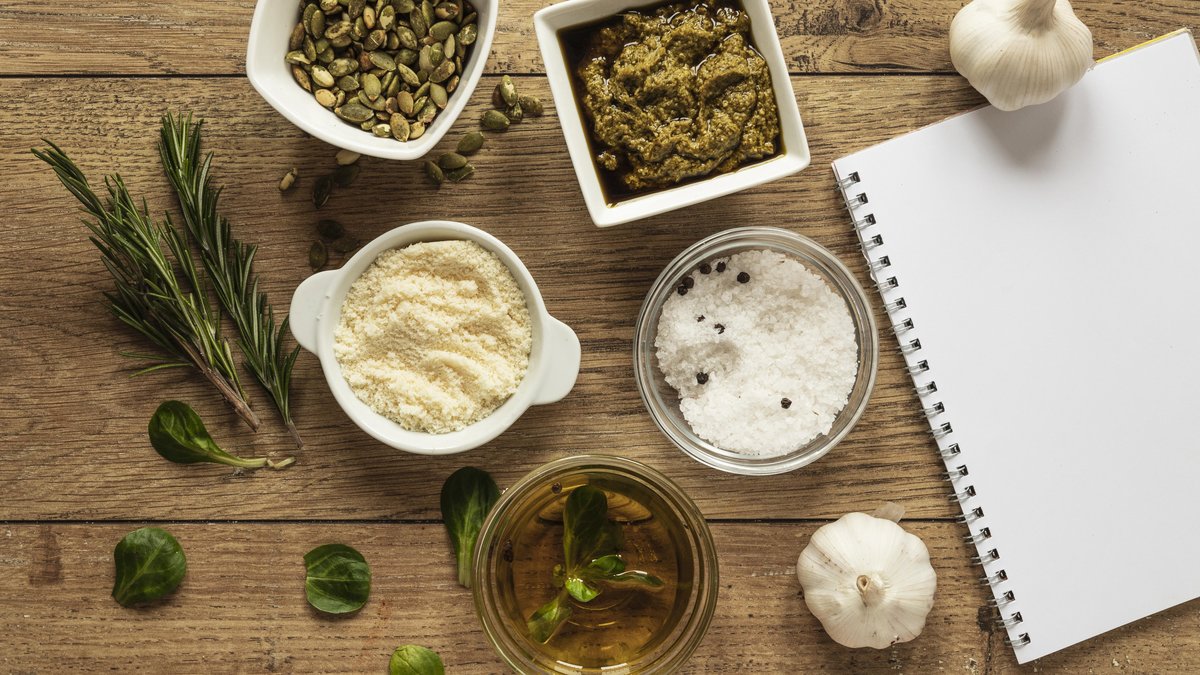A legacy of innovation, quality, and culinary experience.
Read our NewsletterDiscover the surprising health, beauty, culinary, and household uses of rosemary. Discover practical ways to enhance your wellness naturally.
Rosemary, a fragrant evergreen herb native to the Mediterranean, is much more than a culinary delight. Known for its needle-like leaves and distinctive aroma, rosemary has been revered for centuries, not only for its culinary uses but also for its therapeutic, cosmetic, and household applications. In recent years, science has caught up with tradition, confirming many of rosemary’s health benefits and inspiring its use in a wide variety of modern-day solutions. Whether you're simmering a pot of pasta, seeking natural remedies, or looking for ways to enhance your wellness routine, rosemary is a powerhouse you’ll want in your corner.

Rosemary isn't just a staple in the spice rack; it's a versatile herb that holds significant potential for improving mental clarity, boosting immunity, promoting hair growth, and even enhancing mood. Its antioxidant and anti-inflammatory properties make it a go-to solution in holistic wellness circles. In addition to being a culinary favorite, rosemary serves as a natural preservative, air freshener, skin toner, and more.
As we strive to lead more sustainable and health-conscious lifestyles, incorporating natural ingredients like rosemary into our daily habits can make a measurable difference. Let’s explore the remarkable range of uses and benefits rosemary has to offer.
Rosemary is a versatile herb, adding a fragrant, earthy flavor to a variety of dishes. Beyond its culinary uses, it also offers potential health benefits.
Rosemary’s piney, peppery flavor adds depth and aroma to many dishes. Whether you’re roasting vegetables or preparing a hearty meat stew, just a few sprigs can transform a basic meal into a gourmet experience.
Try These Pairings:
With Pasta: Rosemary-infused oil is perfect drizzled over Pasta Ditalini Rigate or Pasta Fusilli, elevating simple ingredients like garlic and tomatoes into a savory masterpiece.
Stuffed Grape Leaves: Add a hint of rosemary to the rice filling for a herbal twist on this Mediterranean classic.
BBQ and Roasted Dishes: Sprinkle chopped rosemary on grilled chicken or lamb, especially when paired with Golden Corn or Mushroom Slices for added texture and taste.
Rosemary contains rosmarinic acid and carnosic acid, natural preservatives that extend the shelf life of perishable foods. These compounds help prevent bacterial growth in meats and sauces.
Rosemary is not only a flavorful herb but also a powerhouse of antioxidants and anti-inflammatory compounds. Its health benefits range from boosting memory to supporting digestion.
One of rosemary’s most well-researched benefits is its positive impact on memory and concentration. Inhaling rosemary essential oil has been shown to improve cognitive performance and alertness. It has even been linked to stress reduction and improved mood.
Tip: Keep a rosemary-scented sachet or essential oil diffuser at your desk to improve focus during work or study sessions.
Historically, rosemary has been used to alleviate indigestion and bloating. It stimulates the production of bile, aiding in the digestion of fats.
Pair with Meals: Add rosemary to fiber-rich dishes featuring Fava Beans or Whole Peeled Tomatoes to boost digestive benefits.
Rosemary is rich in antioxidants that fight free radicals and reduce inflammation. This makes it a helpful herb in managing arthritis, joint pain, and even supporting heart health.
DIY Herbal Tea: Steep fresh rosemary leaves with Adani Tea or mix it with Hot Chocolate for a cozy, health-boosting drink.
Rosemary’s natural properties make it a popular ingredient in skincare and haircare products. It helps promote healthy hair, radiant skin, and a rejuvenated appearance.
Rosemary oil has gained popularity for its ability to stimulate hair growth and prevent dandruff. It increases blood circulation to the scalp, delivering nutrients that help strengthen hair follicles.
How to Use: Mix a few drops of rosemary essential oil with Vegetables Shortening or coconut oil and massage it into the scalp weekly.
Thanks to its antimicrobial properties, rosemary can help reduce acne and improve skin tone.
DIY Toner: Boil rosemary in water, allow it to cool, and use it as a natural face mist or toner. Store in a spray bottle in your fridge.
The antioxidants in rosemary combat signs of aging by neutralizing skin-damaging free radicals.
Combine rosemary-infused oil with Sweet Condensed Milk or honey for a moisturizing anti-aging mask.
Rosemary’s strong scent and natural antiseptic qualities make it an excellent addition to household cleaning routines. It also serves as a natural air freshener and pest repellent.
Rosemary’s clean, invigorating scent makes it an ideal ingredient for homemade air fresheners. Simmer rosemary sprigs with citrus peels and cinnamon for a non-toxic way to freshen your home.
Rosemary acts as a deterrent to mosquitoes and other insects. Plant it near entryways or use essential oil sprays around windows and doors.
Mix rosemary with vinegar and water to create a disinfecting solution that’s tough on germs but gentle on surfaces.
Tip: Combine with Sugar Cane Vinegar and lemon juice for an effective multipurpose cleaner.

Add rosemary to soups, stews, and roasted vegetables.
Infuse olive oil with rosemary for dipping bread or tossing pasta.
Use rosemary in marinades for fish or poultry alongside condiments like Classic Mayonnaise or Ketchup.
Brew rosemary tea with Instant Coffee or Cappuccino Chocolate for an herbal caffeine fix.
Add a sprig of rosemary to sparkling drinks, such as Sparkling Apple Nectar, for a gourmet touch.
Prepping a week’s worth of meals? Add rosemary to baked dishes, or combine it with vegetables like Pineapple Slices and Dill Sliced Pickles for creative flavor combinations.
Fresh vs. Dried: Fresh rosemary has a stronger aroma, while dried is more concentrated in flavor. Use dried rosemary in slow-cooked meals and fresh in finishing dishes.
Storage: Store fresh rosemary in the fridge, wrapped in damp paper towels, or freeze in olive oil cubes.
Harvesting: If growing rosemary at home, trim it regularly to encourage bushy growth and prevent woody growth.
Rosemary is rich in antioxidants and anti-inflammatory compounds. It supports cognitive function, improves digestion, boosts immunity, and may help reduce joint pain and inflammation.
Mix a few drops of rosemary essential oil with a carrier oil like coconut oil and massage it into the scalp. Use this treatment once or twice a week to stimulate blood circulation and support hair follicle health.
Yes! Fresh rosemary has a stronger aroma and is ideal for finishing dishes, while dried rosemary has a more concentrated flavor and works well in slow-cooked meals like stews and roasts.
Wrap fresh rosemary in a damp paper towel and keep it in the refrigerator, or freeze it in olive oil in an ice cube tray for easy future use.
Rosemary can be used as a natural air freshener, insect repellent, skin toner, and homemade cleaning agent when combined with vinegar and citrus.
Rosemary is more than just a humble herb; it’s a multi-purpose solution for flavor, health, and natural living. Whether you're seasoning your favorite Pasta Penne Rigate dish or creating DIY skincare, rosemary brings a wealth of benefits that make it an essential part of your everyday life.
Its versatility spans the kitchen, bathroom, and garden, offering a sustainable and effective way to enhance your well-being. Incorporating rosemary into your routine is a small step with big returns so next time you see this vibrant green herb, think beyond the garnish and imagine the possibilities.
By understanding and embracing rosemary’s full potential, you empower yourself to make more informed, health-conscious, and flavorful choices in daily life.